Arts Council Tokyo implements the Arts Academy program with the aim of discovering and cultivating leaders of arts and culture for the coming age ,and contributing to research on policies and measures to support arts and culture.
Since 2018 we have offered a capacity building program to help future leaders develop the multi-faceted thinking abilities and skills essential to putting them on the path to solving problems faced in their creative endeavors, to creating new value, as well as to achieving their goals. The course is designed to helps strengthen the infrastructure for, and give greater impetus to, the activities of diverse creative leaders who develop their own practices
with a broad perspective on the relationship between society, arts and culture.
The program is based on the two principal constituents of classroom-based lectures and discussions with facilitators/advisors and guest instructors, and the writing and presentation of a report on problem-solving/value creation strategies rooted in the activities of each course participant. The program offers an opportunity for students with established careers in a variety of fields to come together, gain new perspectives and put these to practical use by learning from each other.
There has been increased discussion in recent years in cultural policy about how to leverage the social and economic value of arts and culture, aside from its intrinsic value. In line with this, the interlinkage of commercial and non-profit spheres of activity related to arts and culture, and the intersection of creative activities with economic and other such enterprises, has expanded and advanced more than ever before. In response to this situation, the FY2022 program comprises a program for which one of the themes is “What is non-profit artistic and cultural creation?”- the aim being to explore ways to map out afresh the significance of creative activity for society today and bring that significance to fruition for the future.
New for the FY2022 program, we are offering a lecture for thinking about the forming of new relationships based on the concept and methodology of “community building,” as well as a lecture to deepen insight into the essence of artistic and cultural creation and the basis/theoretical background to its values from the starting point of “cultural rights.”
Participants comprise those with a broad perspective on the relationship of society with arts and culture who strive to improve the overall creative environment, and creative leaders who have the courage to form their own practices and who wish to draw up and put into practice a ten-year vision and take their current activities to a higher level. The program offers the opportunity to explore new possibilities for the creative environment together, and a forum for mutual growth and study. Through these efforts, the course aims to contribute to participants’ capacity building and networking, and to improvement in the overall environment for arts and culture.
Programs of past years
【FY2018】
Activity report/ Problem-solving strategy report collection (PDF)/Video digest (YouTube)
【FY2019】
Activity report/ Problem-solving strategy report collection (PDF))/Video digest (YouTube)
【FY2020】
Activity report/ Problem-solving strategy report collection (PDF))/Video digest (YouTube)
【FY2021】
Activity report/ Problem-solving strategy report collection (PDF)/Video digest (YouTube)
【Course report blog (in Japanese)】
https://www.artscouncil-tokyo.jp/ja/blog/category/arts-academy/
Date/time: Wednesday, June 29, 2022 19:00 – 20:00
Method of implementation: online
How to apply: Send an e-mail with the subject line “AA Capacity building program application briefing” to artsacademy@artscouncil-tokyo.jp and include your name, current position/title, and e-mail contact address.
*Your personal information will only be used to send you information from the organizers about this event.
*Applications by e-mail will be taken until 15:00 on Tuesday, June 28. We will then e-mail you information on the online application briefing.
*If you require sign language interpreting, please apply before 17:00 on Tuesday, June 22.
With Tomonori Ogawa and Tomoko Wakabayashi as advisors and facilitators, the program will feature guest lecturers chosen according to the content of the lectures, and consist of the following program. All sessions will be conducted in Japanese: (*1)
*1 To be held on-site at Arts Council Tokyo (8F, 4-1-28 Kudankita, Chiyoda-ku, Tokyo)
However, there is a possibility that we may switch to holding sessions online depending on the circumstances, such as the announcement of a state of emergency or key measures to prevent the spread of coronavirus.
*Reports on problem-solving/value creation strategies and other deliverables will be edited and published on our website and elsewhere as deemed necessary by Arts Council Tokyo.
*3 Individual consultation dates will be organized separately for the period between the end of November 2022 through the beginning of December 2022.
Friday, July 22, 2022
10:30 – 16:30 (1)(2)
Developing vision/mission and Developing fundraising:
Reaffirming / exploring organizational mission and developing the fundraising capacity necessary for projects / activities
Lecturer: Keita Yamamoto
1st half (around 1 hour)
– Introduction to the program/operating team, self-introductions by participants
– Introductory lecture (scheduled)
2nd half (around 4 hours)
– Lecture and workshop on taking stock of vision and mission for activities/organizations
– Grasping an overall picture of fundraising for projects/activities, adapting practices, expanding ideas, and exploring new possibilities
– Understanding the diversity and potential of funding methods
– Sharing, thinking etc. about the practical problems of fundraising
Monday, August 22, 2022
19:00 – 21:30 (3)
Developing an evaluation axis for extracting value from activities: making use of logical models to refine techniques for improvement and change
Lecturer: Yuriko Minamoto
– Thinking about evaluation for extracting “value”
– Using logic models as tools, looking back on activities, learning about evaluative thinking for leading to continuous improvement in efforts, and to social change
– Finding ways to strengthen your organization/activities by having an evaluation axis
Monday, September 5, 2022
19:00 – 21:30 (4)
Developing ever-changing dynamic relationships: learning how arts and culture relate to society through community-building
Lecturer: Kyosuke Sakakura
– Considering the state of the relationship between arts and culture/society in order to continue updating and remodeling it
– How can we enable creative encounters? Thinking about ways to create emergent local communities that lead to wellbeing and innovation.
Monday, October 3, 2022
19:00 – 21:30 (5)
Organizing thought, identifying challenges and setting agendas
Lecturers: Tomonori Ogawa, Tomoko Wakabayashi
– Based on lectures so far, participants organize their thoughts, take stock of resources around their activities, and explore afresh some pointers towards identifying and solving problems. Participants share fresh insights etc. gleaned from discussion and other aspects of the course.
– Refining self-diagnosis work (using concept sheets), mutual feedback
Monday, October 24, 2022
19:00 – 21:30 (6)
Reconsidering what“culture” and “art” means for humankind from the perspective of “cultural rights”
Lecturer: Miho Nakamura
– Considering other concepts related to “cultural rights” (including the right to life and a living, social rights, human rights, the right to liberty, the right to education, the right to the pursuit of happiness), and developing the ability to broadly review the meaning of arts and culture for all people.
– Gaining deeper insight into the essence of artistic and cultural creation and the basis/theoretical background of its value through a broad view of the world, including a look at the perspectives of the international community and revisions to legislation including The United Nations’ Universal Declaration of Human Rights, the UNESCO Constitution and the UNESCO Convention on the Protection and Promotion of the Diversity of Cultural Expressions.
Monday, November 7, 2022
19:00 – 21:30 (7)
Thinking about the need for arts and culture in society:
Thinking about how to be independent with support for arts and culture as the key
Lecturer: Masao Katayama
– Looking at why society needs arts and culture.
– Taking a comprehensive look at the environment surrounding creative activities and developing the ability to objectively explain the value of activities.
– Understanding the system of support for arts and culture and exploring ways to be independent and self-reliant.
To be organized from late November through early December: Individual consultation days
Through interviews with advisors and facilitators, participants explore specific solutions, plans and processes with regard to their individual creative activities, as well as approaches to the challenges and their awareness of issues in the creative environment.
Monday, January 16, 2023
17:00 – 21:00 (8)
Final presentation of report on problem-solving/value creation strategies
Lecturers: Tomonori Ogawa, Tomoko Wakabayashi
– Proposing concrete implementation methods for solving problems encountered in arts and culture-related activities, sharing mutual thinking
*Please note that the program is subject to change according to the circumstances.
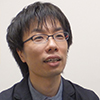
Tomonori Ogawa
President, NPO ST Spot Yokohama
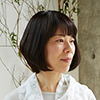 撮影:安田有里 (C)Ko Na design
撮影:安田有里 (C)Ko Na design
Tomoko Wakabayashi
Project Coordinator / Specially Appointed Associate Professor, Rikkyo University Graduate School of Social Design Studies
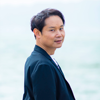
Keita Yamamoto
Representative, Kiyoshichi LLC / Director, Seventh Generation Project Co., Ltd./ member of the board of directors, Japan Fundraising Association / member of the board of directors, Social Value Japan / member of ecosystem co-creation team, NPO ETIC.
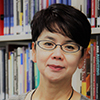
Yuriko Minamoto
Professor, Meiji University Graduate School of Global Governance
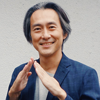
Kyosuke Sakakura
Associate Professor, Faculty of Urban Life Studies, Tokyo City University
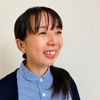
Miho Nakamura
Associate Professor, School of Cultural and Creative Studies, Aoyama Gakuin University
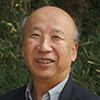
Masao Katayama
President, Saison Foundation
As well as understanding the purpose of this program, applicants should be research-aware, motivated to attend lectures, and fall under all of the following. Applicants should:
(*1) Priority will be given to students who can attend all eight lectures.
(*2) Reports for the final presentation will be edited for publication.
(*3) Smartphone screens are small, and you may not be able to view materials, so we recommend students take classes via a PC.
Required documents
Participants should download the designated application form and fill in the following required items.
(*1) Please note that personal information supplied in this application will be used by Arts Council Tokyo within the scope required for the selection of applicants, in accordance with the privacy policy of Tokyo Metropolitan Foundation for History and Culture.
(*2) Please note you will have the opportunity to share your short report/motivation for application with the instructor(s) and other participants in program lectures.
How to apply
Please apply via e-mail to artsacademy@artscouncil-tokyo.jp
Application period
Before 17:00 from Monday, June 13 through Friday July 8, 2022
Members of a selection committee established by Arts Council Tokyo will review the application documents submitted
Applicants, whether successful or unsuccessful, will be notified by email of the results by Friday, July 15, 2022, or thereabouts.
Please note that we are unable to respond to inquiries by telephone, etc. concerning the results. Additionally, please note we plan to include a list of participants on the Arts Council Tokyo website page introducing our projects.
Grants Section, Planning Department,
Arts Council Tokyo, Tokyo Metropolitan Foundation for History and Culture
TEL: 03-6256-8431
FAX: 03-6256-8828
E-mail: artsacademy@artscouncil-tokyo.jp
Arts Council Tokyo (Kudan First Place 8F, 4-1-28, Kudankita, Chiyoda-ku, Tokyo)